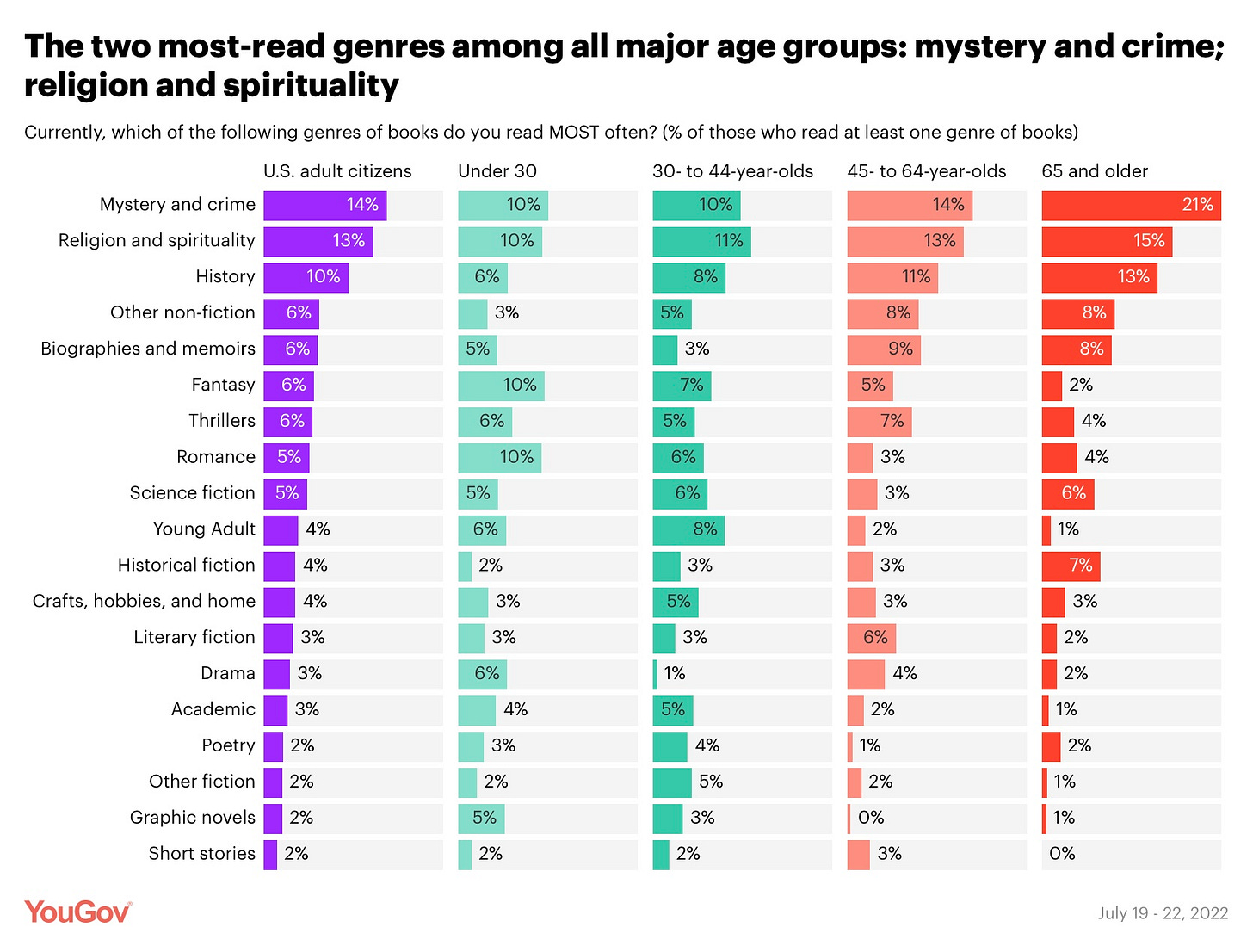Bookish Diversions: Memory Enhancement
Books as Technology and Therapy for Recall, Reading Habits, Kids These Days, More
¶ Technology for memory. In Plato’s dialogue The Phaedrus, the Egyptian King Thamus says that writing will make people’s memory atrophy. Why? Because they’ll outsource their native abilities to the page. There’s more going on in his argument of course, but I don’t buy it. I remember plenty because I read it in a book. The very format of books encourage recall. There’s a moment in Augustine’s Confessions, for instance, where he mentions marking his place in a book so he could return to the passage: “I placed my finger or some other marker in the book and closed it.” Bookmarks have a long and fascinating history, and people use all sorts of items to mark their place and aid recall; the Oakland Public Library actually maintains a website with markers accidentally left in returned books.
¶ Therapy for memory. Contemporary neuroscience also begs to differ with King Thamus. If books offer a technology for recall, they likewise offer a therapy for it, according to neuroscientist Mithu Storoni. Reading can actually enhance memory—and not merely because books freeze facts in place for easy retrieval. Our biggest challenge today, she says, is attention; we’re glutted with so much information, we let much of it slip our minds. We’re inadvertently training ourselves to forget. One solution? Reading. “You have to remember what happened pages before to fit what’s happening now into the plot,” she says. “Research published recently in the journal Neurology,” according to a London Times interview with Storoni, “showed that regularly reading books, newspapers or magazines can give you the thinking skills of someone 13 years younger.”
¶ American reading habits. Despite the therapeutic value—and sheer joy—of reading, most Americans fill their time with other endeavors. More than two thirds of respondents to a new YouGov survey say they read 10 or fewer books a year. About a third read one or none. Just 12 percent of all adults read 20 or more books a year; the percentage is higher for colleges grads (20 percent) and people over 65 (22 percent). Perhaps unsurprising: The older a person is the more likely their childhood featured books. Among all ages, the two most-read genres are mystery and crime and religion and spirituality. (Intriguing combo.) History takes third.
¶ Kids these days. Ebook sales have dipped, and young readers might be contributing to the trend. At least one is doubling down on physical books. Here’s young Winnie Lin on encountering Steinbeck’s Of Mice and Men in hardcopy:
Though I had seen the author’s name in the online version, it was different to feel the thin novel in my hand with “John Steinbeck” printed on the cover. As my fingertips traced the embossed outline of the author’s name, the slight bumps of the lettering inexplicably made me feel a more intimate connection with the author.
The novel was also featherlight and around the size of my handspan, evoking a familiar sense of disappointment that I often feel when I hold a thin book: this story will end too soon and I don’t want it to end so fast. . . .
Some printed books have a special smell that makes the novel feel special to me. It’s hard to describe but I’m sure I’m not the only one that thinks this. I know I cannot convince every teen to switch from digital to print, but maybe my writing about the difference will at least get some of them to think about it.
Personally, I hope so.
¶ Paperback writer reader. There’s a lot to be said for physical formats, particularly paperbacks as it happens. I missed it, but July 30 was Paperback Day, apparently. Rob Tempio has fond things to say about heady little books that fit nicely in the hand. The subject has a wonderful and entrepreneurial history; I shared the story of egghead paperbacks a while back, but if you missed it like I missed Paperback Day, you might want to give it a read now.
¶ Dogeared and dearly loved. Why do we keep old, falling-apart books? Because we love them and they remind us of people we cherish and times we don’t want to forget. The torn page is a token of precious time, imbued with memories more fragile than the stitched or glued spine barely holding all its neighbors in place.

¶ Is Shakespeare relevant today? Yes. Even if you have objections? Still yes.
¶ Don’t interrupt Julian Smith while he’s reading a book.
¶ Thanks for reading! Please share Miller’s Book Review 📚 with a friend.
¶ If you’re not a subscriber, take a moment and subscribe. It’s free, and I’ll send you my top-ten quotes about books in your welcome email. Thanks, again!






Enjoyed
Joel, I always read your reviews and always enjoy them, even though I don't always tell you. Here's my latest installment of affirmation. Today's post was great. (It's great to know I have the thinking skills of a 42-year old.) Keep up the great work! Those of us who comment are the tip of the iceberg who benefit from your curation.